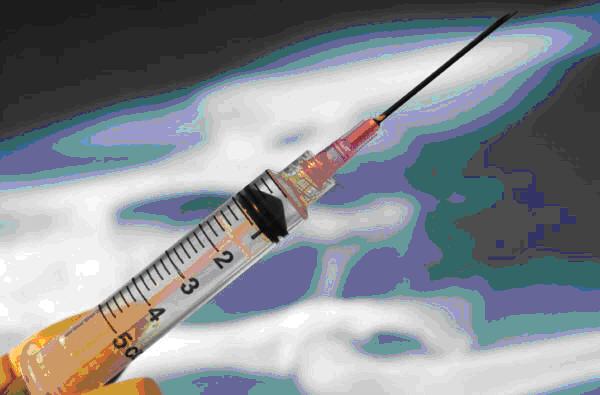Canine Parvovirus Explained – Outbreaks

A bit unexpectedly, I found myself digging into the details of a recent (and ongoing) canine parvovirus outbreak in Massachusetts. Regular media tends to report just 2 things: (1) There is an outbreak. (2) Vaccinate your pets. That’s NOT nearly enough information for dog people like us, so I’ll be writing a series of posts with more details and more science behind parvo outbreaks and parvo immunity. This is the first post in the series. It explains what I want you to think when you first hear about a parvovirus outbreak.
Full disclosure: I’m particularly interested in this topic because I worry that outbreaks may lead to over-vaccination of dogs who really don’t need to have a “booster shot.” Having lost my canine soul mate to an adverse rabies vaccine reaction in December 2013, after a 693-day fight for her life, has NOT made me anti-vaccine, but it has made me quite concerned with over-vaccination of dogs as a standard practice. You see, the trend toward vaccinating every dog for everything every year began in the 1970s when parvo first roared onto the scene — killing scads of dogs.
Also, both Lilly, our late blog heroine, and Ginko, my remaining / elderly dog, SURVIVED parvo as puppies, so I know how scary this disease can be.
When You 1st Hear About a Parvo Outbreak …
I want you to remember:
Parvo outbreaks do NOT mean there is a newer / stronger / vaccine-resistant form out there. Parvo is scary enough in its regular form. It was virulent in the 1970s. It remains virulent today. Think of it as the Zombie of the canine virus world. It doesn’t die easily in the environment, after being deposited via infected animal eliminations. The virus can live outside the body (as long as 7 months, in the right conditions), just waiting to infect another animal.
Parvo outbreaks are not uncommon and typically affect unvaccinated dogs and puppies. There was a prolonged outbreak in 2013 that swept down from Northern California into Southern California and on into Arizona and Nevada before it finally stopped. I didn’t hear about that one. Did you?
FYI – It doesn’t help that infected / sick puppies and healthy ones coming in for vaccines may cross paths at veterinary hospitals or vaccination clinics. (Kind of makes me want to suggest hiring a house-call veterinarian to do puppy vaccinations at home.)
There will ALWAYS be a risk gap between when the antibodies a puppy gets from his mother’s milk fades and when a vaccine has time to work. Always. It’s about 2 weeks long, and there is just NO way to close that gap. When you hear about puppies being cared for properly, who’ve started getting vaccines, this is most likely what has happened. They were exposed to parvo — someway, somehow — during this window of time. Yes, they’ve been vaccinated, but they are not immune.
Vaccination doesn’t always mean immunity has been established in an individual animal. We’ll talk in future posts about how that happens, but just know that there are situations where a vaccinated dog does not have immunity — either because puppy vaccines were blocked from working by the mom dog’s maternal antibodies or because the puppy is a so-called non-responder (meaning no matter how many times you vaccinate immunity just doesn’t happen). I’ll do a whole post on non-response, so stay tuned. About 1 in every 1,000 dogs / puppies does NOT respond to the parvo virus. It’s genetic.
So, What About this Parvo Outbreak in Massachusetts …
Word was going around that some of the dogs who got sick and/or died in the parvovirus outbreak in Massachusetts were ADULT dogs who had been fully vaccinated.
If true, that is indeed scary. I put a request into Dr. Ron Schultz at the University of Wisconsin veterinary school. He is a PhD, not a DVM, but he is a genius immunologist in the veterinary field. Truly. As far as I’m concerned, NO ONE knows more about vaccines, immunity and the viruses / bacteria that affect pets. He has been on the front lines of parvo since the first days. Or as he jokes, “since the beginning of time.”
Dr. Schultz was nice enough to call me back right away. We had a GREAT discussion about parvo (including the main points above), then I went into full reporter mode to see what FACTS I could find about the parvo outbreak in Massachusetts.
So far, I haven’t heard back from anyone in Lowell, Mass. It’s a shame because that’s where these reports of adult dogs being affected seem to come.
HOWEVER, here is what I have been able to chase down from organizations with hands-on contact with these cases:
5 cases near Lawrence, Mass
Source: Mike Keiley, Methuen Animal Care and Adoption Center at Nevins Farm / MSPCA, via phone
- All puppies
- All unvaccinated
- All died
24 cases near Springfield, Mass (22 confirmed, 2 suspected)
Source: Karina King and Lee Chambers, Dakin Pioneer Valley Humane Society, via email
- 3 puppies about 2-3 months old
- 8 puppies about 4-6 months old
- 6 dogs about 7-11 months old
- 5 dogs age 1 year and up
- Only one of the puppies had received 1 vaccine.
- 9 were euthanized
- 6 recovered at the humane society then went home.
- 1 went home to recover, but later died.
- 1 went home to recover and is still doing OK.
- 7 went home with meds, but the humane society hasn’t been able to reach the families to find out how the dogs / puppies are doing.
In addition, the humane society tells me that a local emergency hospital has seen another 29 confirmed cases (as diagnosed via SNAP test), but anecdotally, it looks like only 25% of cases they are seeing get the SNAP test (families declined), so the total cases may be higher.
Official vaccination status of reported cases
Parvovirus is a reportable disease, meaning veterinarians and animal agencies have to tell state officials about confirmed cases. I contacted the Massachusetts Division of Animal Health and received the following info, via email:
- All of the reported cases have been in UNvaccinated dogs or puppies
Just to be EXTRA sure, I followed up later to ask if “unvaccinated” meant NEVER having been vaccinated or simply that re-vaccination was “overdue.”
The answer came back >> never vaccinated.
Basically, with 3 sources refuting reports that some of the dogs were vaccinated adult dogs, I feel comfortable saying that this is a “normal” parvo outbreak. — meaning in unvaccinated dogs by the same parvo strain that’s been around for 36 years or so. I’m NOT saying it isn’t terrible that dogs are getting so sick and dying. I’m NOT saying it isn’t something to worry about. I’m just saying that this does happen. It will continue to happen for some of the reasons noted above.
If the Worst Does Happen …
During my conversation last week with Dr. Schultz, I painted a bit of a doomsday scenario for him. I asked him what *if* he did get word that a whole bunch of adult vaccinated dogs were dying of parvo in a community.
He replied, “Then, I’m going to be there.”
I asked, “Taking a look at patient zero?”
He replied, “You better believe it. I will be there for sure.”
My best advice to you? Until you hear credible reports of vaccinated adult dogs dying of parvo in large numbers, it means something else is going on — not a failure of the vaccine, not a new strain.
If cases like that really do crop up and you see credible reports coming from Dr. Schultz or saying that he is investigating, then you’ll know something BIG is going on.
I hope this has been helpful. Stay tuned for future parvo posts about:
- Why the risky window for parvo will never go away … and how it might look like adult / vaccinated dogs are getting sick
- What a parvo non-responder is and how to know if your dog / puppy is one
- How breeders interested in minimal vaccination protocols are working with Dr. Schultz to pinpoint the best times to vaccinate each litter
- And, maybe, if I feel up to it … how to provide antibodies to orphaned puppies
